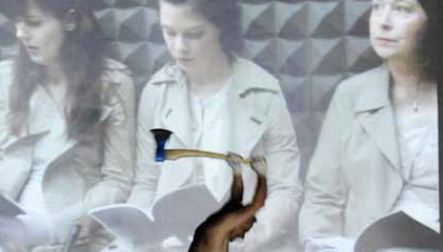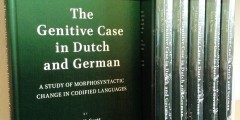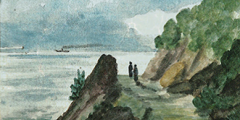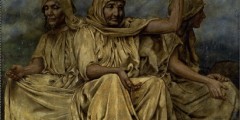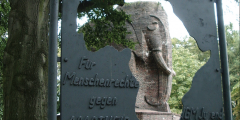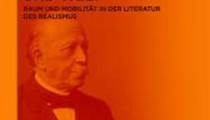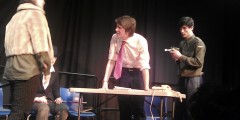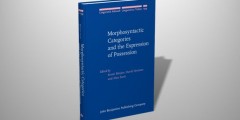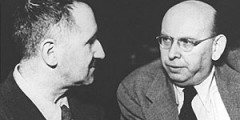Postdramatic Theatre and the Political
24/01/2014
Postdramatic Theatre and the Political – International Perspectives on Contemporary Performance is an exciting new collection of essays, edited by Dr Jerome Carroll and Prof Steve Giles from the Department of German Studies here at Nottingham, and Dr Karen Jürs-Munby from Lancaster University, about the political claims of postdramatic theatre. The book, which has just …
A Most Curious Case: The Trials and Tribulations of the Genitive in Dutch and German
03/01/2014
In the 19th century, the Dutch genitive case was referred to as the ‘holy case’ by the poet and novelist Jacob van Lennep (1802-1868) because, like certain sacred names in Judaism, it was written but not spoken. By this, he meant that the genitive occurred still in careful written language but that it had all …
Rethinking the relationship between Realism and Romanticism in the nineteenth century
02/09/2013
Romanticism and Realism are arguably the two most prominent nineteenth-century movements in European literature and art, typically conceived as mutually exclusive and somehow reflecting the philosophical conflict of idealism and realism that runs through the history of modern European culture, or indeed is seen as universal. Nineteenth-century European literary history is seen as a shifting …
Germania remembered
16/08/2013
A new book, Germania Remembered 1500–2009. Commemorating and Inventing a Germanic Past, co-edited by Dr Nicola McLelland (German) and Dr Christina Lee (English), and with a foreword by Tom Shippey, examines how German, English and Scandinavian scholars, writers and artists have invoked the remote history of Germany in order to bolster their ideas about what it …
German literature rediscovers Germany’s neglected colonial history
15/07/2013
In the late 1990s, a surge of historical novels about German colonialism in Africa and its previously neglected legacies hit the German literary scene. Accelerated by the centenary in 2004 of Germany’s colonial war in South-West Africa and the genocide of the Herero, this development has continued to the present, making colonialism an established theme …
Nineteenth-century German literature reflects globalisation and modernisation
25/06/2013
The literature of German Realism, written between c. 1840 and 1900, has often traditionally been seen as a turn against modernisation, a retreat into German provincialism and hence a deviation from the European literary trajectory from Romanticism to Modernism. International scholarship in German literary studies since the later 1990s has challenged this idea, and research into …
‘Der Hauptmann von Köpenick’ in the Department of German, 20th and 21st March
20/03/2013
Get your tickets NOW for the University of Nottingham German Theatre Group’s production of Der Hauptmann von Köpenick, by Carl Zuckmayer. Released after fifteen years in prison, trapped in a bureaucratic maze, Wilhelm Voigt wanders 1910 Berlin in desperate, hazardous pursuit of identity papers. Luck changes when he picks up an abandoned military uniform in a fancy-dress …
Possession marking: ’s and beyond
14/03/2013
One of the most widely studied elements of the Germanic languages is the ’s which attaches to a noun phrase to indicate possession in English. The analysis of this element, the possessive ’s, has been the object of much debate in linguistics on account of its unusual behaviour, which makes its categorisation problematic. It can …
Forthcoming event: ‘Ask me more about Brecht’
04/03/2013
On 13 March 2013 the Department of German Studies will host a multimedia show by Sabine Berendse and Paul Clements, entitled ‘Ask me more about Brecht: Hanns Eisler in conversation with Hans Bunge’. Bertolt Brecht was one of the leading German dramatists and poets of the twentieth century. The composer Hanns Eisler was Brecht’s most …

